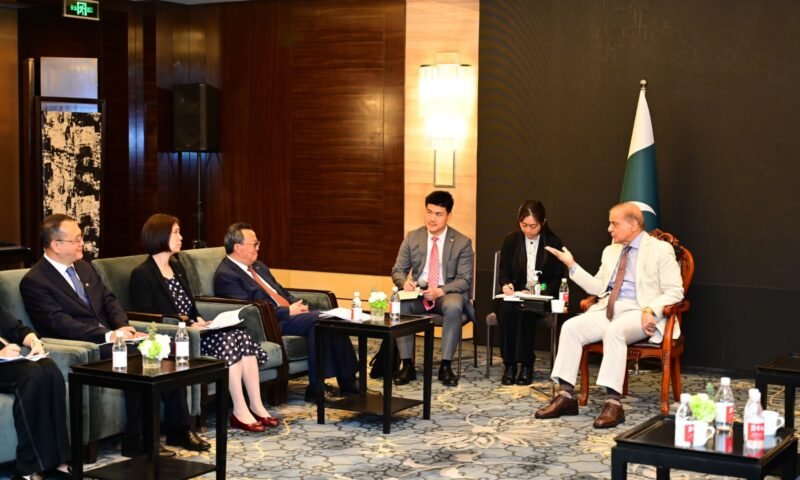Finance Minister Muhammad Aurangzeb recently emphasized the potential of accessing Chinese capital markets by introducing Panda bonds, as a strategic measure to enhance Pakistan’s economic prospects. Aurangzeb highlighted the strategic significance of this project during his speech at the “Pak-China Business Forum” in Shenzhen. This initiative represents a crucial change in Pakistan’s economic strategy under the leadership of Prime Minister Shehbaz Sharif.
The Pakistani delegation, under the leadership of Prime Minister Sharif, arrived in China with a specific agenda: to investigate opportunities for gaining access to Chinese capital markets and to enhance bilateral commercial relations. Aurangzeb’s comments at the forum emphasized the preparedness and meticulous planning that had been invested in this project. Pakistan seeks to emulate the successful integration of the Egyptian model into the Chinese capital markets in order to achieve a stable and resilient economic future.

Aurangzeb confirmed that the initial phases of this endeavor are already under progress, with Pakistani officials maintaining regular contact with Chinese regulatory entities. This collaboration demonstrates a firm dedication to guaranteeing the seamless execution of the Panda bond program. The finance minister expressed assurance that the plan would begin in the next fiscal year, indicating a proactive and forward-thinking approach to economic management.
Aurangzeb noted a decline in inflation in May, crediting this favorable outcome to the structural economic reforms implemented under Sharif’s tenure. The decrease not only reflects the effectiveness of previous economic policies but also instills trust in Pakistan’s ability to govern its economy. The finance minister’s focus on Special Economic Zones (SEZs) highlights Pakistan’s economic policy’s strategic orientation. Pakistan’s objective is to attract significant foreign direct investment (FDI) by promoting export-driven economic growth through the establishment of SEZs. These zones are specifically created to promote collaboration between companies and the exchange of technology, fostering a vibrant business climate that stimulates innovation and competitiveness.

The Pak-China Business Forum also emphasized the growing trust of global investors in Pakistan’s economic prospects. Aurangzeb acknowledged Prime Minister Sharif’s role in spearheading these economic achievements and establishing a favorable atmosphere for progress and prosperity. The event provided a venue to demonstrate Pakistan’s dedication to economic reform and its preparedness to participate in global financial markets.

Finance Minister Muhammad Aurangzeb’s speech at the Pak-China Business Forum highlights an important point in Pakistan’s economic trajectory. The implementation of Panda bonds and the prioritization of key industries like agriculture and IT indicate a revolutionary approach to economic governance. Pakistan is well-positioned to capitalize on emerging prospects, stimulate economic expansion, and establish a robust and varied economy. Adopting a proactive approach is crucial for successfully navigating the complex challenges of the global economic environment and securing a prosperous future for Pakistan.





